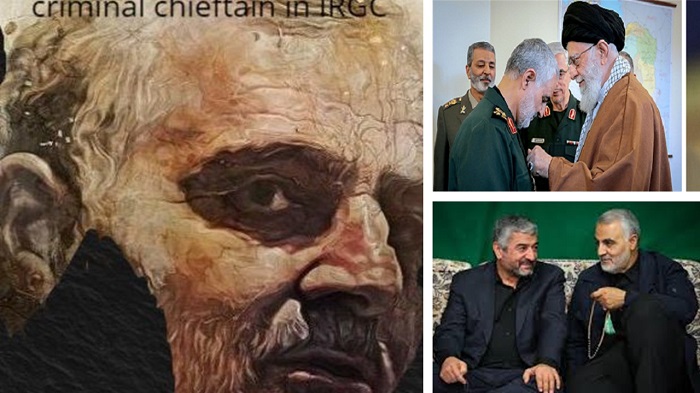
Former head of IRGC admits the eliminated top terrorist, Soleimani, was a key figure in suppression in Iran
The former head of the IRGC Quds Force, Qassem Soleimani, who was taken out in a US drone strike on January 3, was directly involved in the violent crackdown on Iran’s student protests in 1999 and nationwide protests in 2009, according to Mohammad Ali Jafari, the former commander of the notorious Revolutionary Guards (IRGC).
Jafari tweeted on Sunday: “During the 1999 and 2009 seditions, Haj Qassem was on the streets to fight the anti-revolutionaries and took effective measures to contain the insecurity and riots.”
He also said that Soleimani, who was the leader of the regime’s foreign terror apparatus for over 20 years, regularly stayed at Tehran’s main IRGC base, the Sarallah Garrison, which has the role of suppressing protests in the capital and maintaining the regime’s security.
Since his death, the regime has tried to paint Soleimani as a popular national hero, citing his millions-strong funeral crowd, but it was revealed soon after that people were forced or bribed into the streets.
It was also well-known that the Soleimani was in charge of the suppression of protests in Iraq, Syria, and Iran in the months before his death, as well as the murder of dissidents abroad including members of Mujahedin-e Khalq (PMOI/MEK Iran), so why would the Iranian people be sorry about his death?
Indeed, most Iranians have been celebrating. They held parties and ate cake, in the days after his death. In the weeks after, they tore down posters of Soleimani in different Iranian cities and burned them showing the regime exactly what they think of the regime’s propaganda.
These latest comments from Jafari help to prove that Soleimani helped murder Iranians and that the regime tried to cover it up. Since then, Iranian officials and state-run media tried to dismiss the claims, but Jafari remained silent.
He was head of the IRGC until May 2019, when he was removed under suspicious conditions. Many believe there is evidence that in light of growing domestic protests and international pressure, he defected.
Jafari’s comments come at a sensitive time for the mullahs, as this week marks the 40th day since Soleimani’s death and this is a traditional day of mourning for Shiite Muslims. In addition, this week marks the 41st anniversary of the 1979 revolution, where the mullahs stole power from the people of Iran. The regime had planned celebrations and commemorations to make their regime look more stable in the face of ongoing crises.
While unlikely to work in the first place, it seems a lot less likely now.
